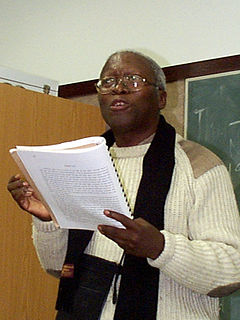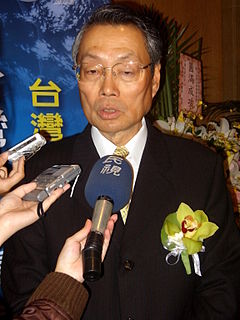A Quote by P. J. O'Rourke
Adam Smith's huge failure was the fact that he did not foresee the industrial revolution.
Quote Topics
Related Quotes
All black people who are even minimally conscious, black people who have ever experienced Europe's technological power crusading in the vanguard of a civilizing mission, have profound feelings of inferiority and bitterly regret the fact that the Industrial Revolution did not agreeably commence in Dahomey or Dakar. Nothing is achieved by concealing this fact.
In comparison to the French Revolution, the American Revolution has come to seem a parochial and rather dull event. This, despitethe fact that the American Revolution was successful--realizing the purposes of the revolutionaries and establishing a durable political regime--while the French Revolution was a resounding failure, devouring its own children and leading to an imperial despotism, followed by an eventual restoration of the monarchy.
Because I had visited Silicon Valley, I recognized the microprocessor was going to lead the second industrial revolution. We Chinese could not miss that opportunity again - we missed the first industrial revolution already. We put our effort into trying to bring this new technology from the United States to Taiwan. That was the begining of Acer.
I am grateful to the fossil fuel industry for bringing us the concentrated carbon that took us through the Industrial Revolution and through the technological revolution and brought us to the gateway of the renewable energy revolution, or what I call the sunlight revolution. But that is where we must part ways. It's the natural order.
Let's take Adam Smith, the patron-saint of capitalism, what did he think? He thought the main human instinct was sympathy. In fact, take a look at the word "invisible hand." Which, of course, you learned about, or you think you've learned about. Take a look at the actual way in which he used the phrase. There is almost no relation to what is claimed.

































